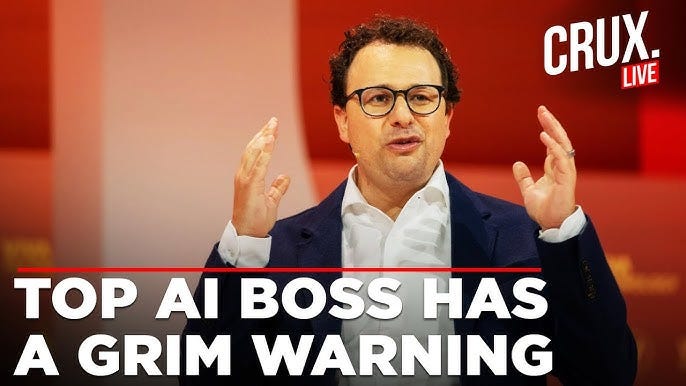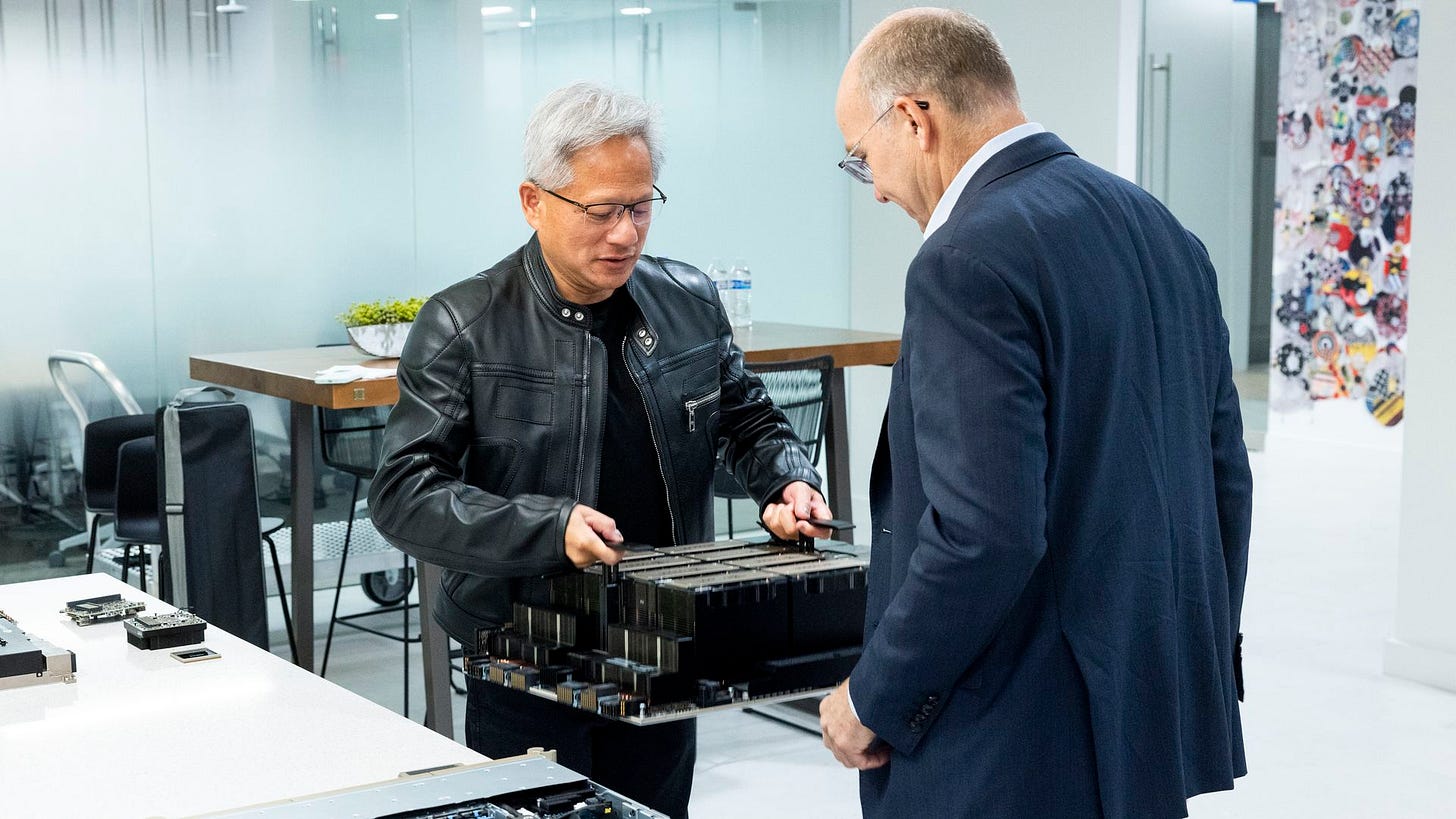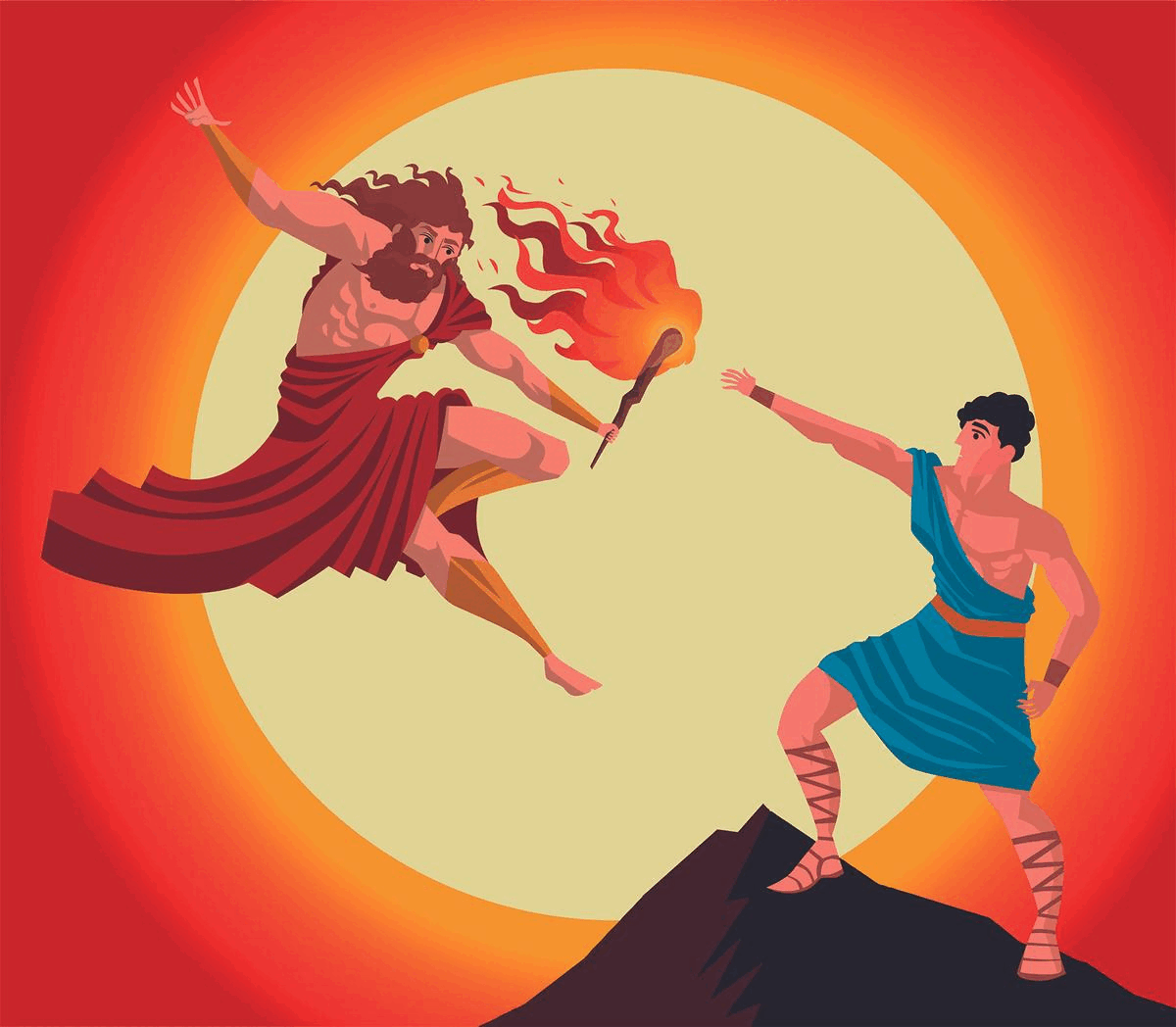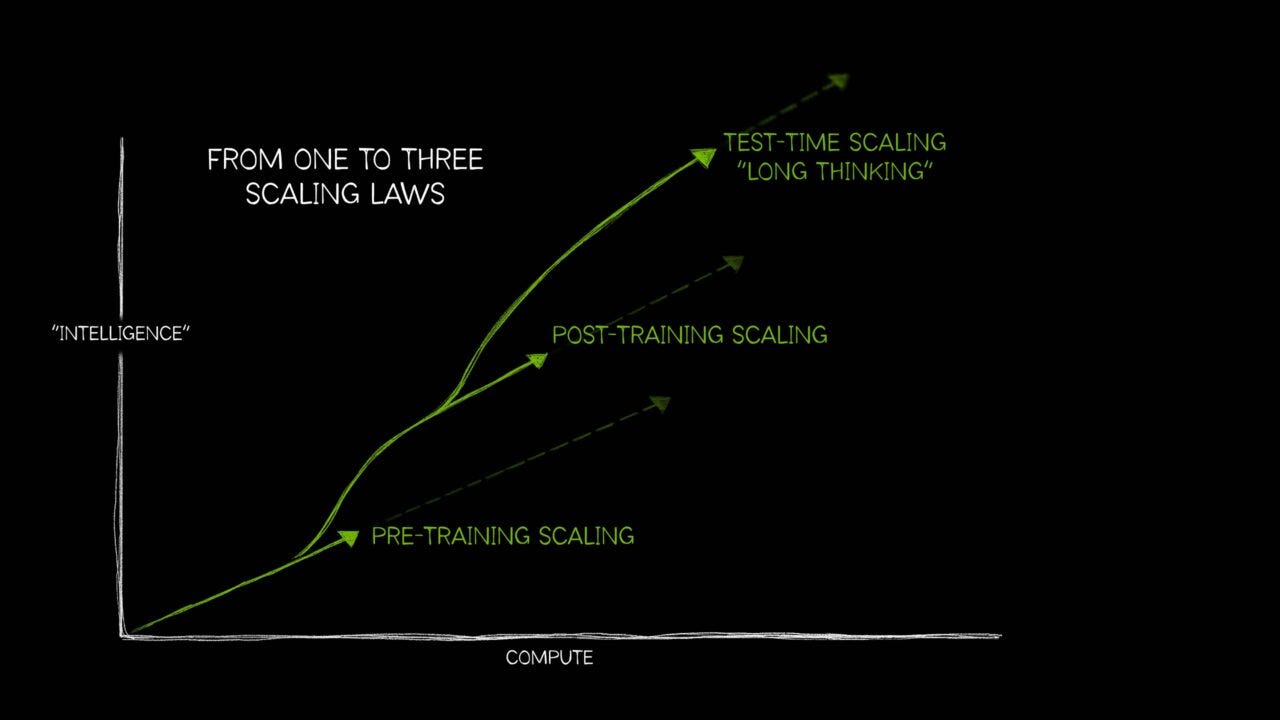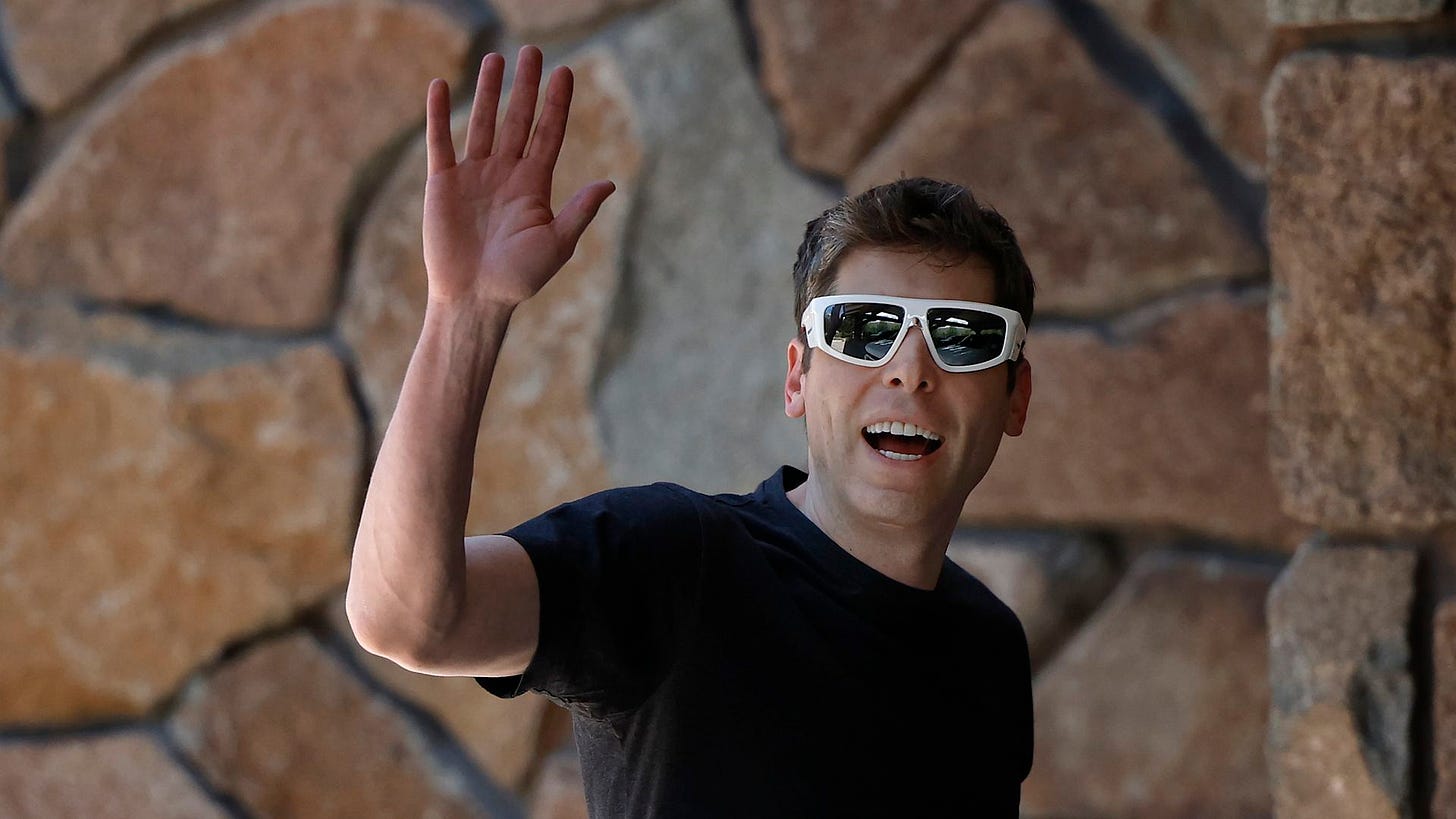
AI: Jensen vs Dario debate AI Jobs Impact. RTZ #789
As the white hot global AI Talent Wars impact the Mag 7 in unexpected ways this summer, the opposite fear of AI resulting in job losses across the economy also continue to rage on. Two opposite things can be true at the same time. This summer saw #2 private LLM AI company Anthropic founder/CEO Dario Amodei inflame new fears of white collar job losses to come soon. And that has been echoed widely across mainstream media and the political establishment in Washington and beyond.
From my perspective, the most pragmatic and balanced view on job fears in this AI Tech Wave come from Nvidia founder/CEO Jensen Huang.
He continues to be one of the most deeply technical knowledgeable executives on where AI is going, and the most familiar with how long technology can take to truly do the things we hope and fear at scale. His company Nvidia, an ‘overnight success story’ over three decades, is itself a tale of technology ahead of market fears and dreams.
Axios summarizes this well in “Behind the Curtain — Jensen vs. Dario: “There will be more jobs”:
“Nvidia CEO Jensen Huang, bristling at Anthropic CEO Dario Amodei’s warning of a looming white-collar apocalypse, tells Axios that artificial intelligence will create vastly more and superior jobs.
“Why it matters: The Huang vs. Amodei debate, playing out in exclusive interviews with us, captures a deep divide among AI experts over America’s job market in a highly automated world.”
“Both of them agree we’ll soon have AI that’s smarter than humans — and will radically reshape how people work and companies operate.”
But here’s the glass half empty:
“Amodei told us AI could wipe out half of entry-level white-collar jobs in a few years. His comments sparked weeks of national debate over the dangers of fast and furious technological advancements in AI.”
And the half full version:
Huang (pronounced wong) — whose company last week became the most valuable in history, worth $4 trillion — responded: “I don’t know why AI companies are trying to scare us. We should advance the technology safely just as we advance cars safely. … But scaring people goes too far.”
“Noting Amodei and other AI leaders issuing warnings are “really, really consequential and smart people,” Huang said he was eager to “offer a counter-view,” based on “all the evidence of history.”
Jensen’s arguments are deeply rooted in the history of humans and technology:
“If we have no new ideas,” Huang began, “and the work that we’re doing is precisely all that needs to be done … and no more than what humanity will ever need, then when we become more productive, [Amodei’s warning would be] absolutely correct — we will need fewer people doing that work.”
“However, if you now look at history and you ask yourself: ‘Do I have more ideas so that, if I were to be more productive, I could do more?’ Then, you would describe a condition that reflects human history — that we have become more productive over time.”
“We’ve become more productive raising crops,” Huang continued, noting that it’s not like all of a sudden, as a result of mechanization, “everybody ran out of work.”
“Everyone’s jobs will change,” he said. “Some jobs will be unnecessary. Some people will lose jobs. But many new jobs will be created. … The world will be more productive. There will be higher GDP [gross domestic product, or total national output]. There will be more jobs. But every job will be augmented by AI.”
Anthropic of course had a response to Jensen:
“In response to Huang’s comments, Jack Clark, co-founder and head of policy at Anthropic, told us: “Starting a conversation about the impact of AI on entry-level jobs is a matter of pragmatism. As producers of this technology, we have an obligation to be transparent and clear-eyed about AI’s potential societal and economic impacts.”
“We should be discussing these issues in the open and preparing for them as needed — just like we should be discussing and preparing for its transformative benefits.”
A fuller glass argument can be made in straightforward terms, as AI Scales in so may directions:
“Zoom out: Huang loves to talk about a “new industrial revolution” where AI benefits people who work with their hands to build data centers and create other AI infrastructure — including the chips that last week gave Nvidia a market capitalization of $4 trillion (and made Huang worth $144 billion, eclipsing Warren Buffett).”
“Leading a show-and-tell in Nvidia’s kitchen in downtown Washington, Huang pointed to a 70-pound Nvidia system that, when stacked in racks, helps power AI models. “It takes the love of manufacturing to build these things,” he said. “There’s just so much admiration for intellectual work in the United States. We need heroes who are making things.”
“The bottom line: “The AI revolution,” Huang told us, “is both an incredible technology — and the beginning of a whole new industrial reset.”
“Go deeper … Our interview with Dario Amodei, “Behind the Curtain: A white-collar bloodbath.”
OpenAI founder/CEO Sam Altman picked a side here, pragmatically supporting Jensen in a recent tweet/x in detail:
“agree with lots of what jensen has been saying about ai and jobs; there is a ton of stuff to do in the world. people will “
“1) do a lot more than they could do before; ability and expectation will both go up”
“2) still care very much about other people and what they do”
“3) still be very driven by creating and being useful to others for sure jobs will be very different, and maybe the jobs of the future will look like playing games to us today while still being very meaningful to those people of the future. “
“(people of the past might say that about us.) betting against human’s ability to want more stuff, find new ways to play status games, ability to find new methods for creative expression, etc is always a bad bet. maybe human money and machine money will be totally different things, who knows, but we have a LOT of main character energy. “
more to come.”
It’s important to note since Sam will be in DC shortly to talk to lawmakers and regulators on these very weighty topics. Axios has more here in “Altman plans D.C. push to “democratize” AI economic benefits”.
These are early days in this AI Tech Wave, and important to note that the progression of technology waves almost always takes longer than earlier expected.
AND that Tech almost never proceeds in an algebraic progression apparent initially with quick extrapolations of the earliest data points. Rather it tends to be concurrent calculus driven progressions, driven by the momentum of almost incalculable variables. Indeed, almost quantum calculations in that context.
Which is all a wordy way to say, let’s ‘Wait for it’ and not get prematurely over-afraid or excited ahead of what is ahead. Stay tuned.
(NOTE: The discussions here are for information purposes only, and not meant as investment advice at any time. Thanks for joining us here)

